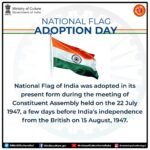Pradhan Mantri Garib Kalyan Anna Yojana extended: Basics Explained

The government has extended Pradhan Mantri Garib Kalyan Anna Yojana (PMGKAY), for the next five years and will provide free ration for 800 million people. providing 5 kg of rice or wheat per person and 1 kg of preferred pulses per household PMGKAY beneficiaries will get 5kg free ration per person per month in addition to their normal quota of food grains under the National Food Security Act. Under NFSA, highly subsidised food grains are provided to about 75% rural and 50% urban population of the country are being covered under two categories — Antyodaya Anna Yojana (AAY) and priority households.
The Central government provides foodgrains to people – rice at Rs 3 per kg, wheat Rs 2 per kg, and coarse grains Rs 1 per kg – under the National Food Security Act (NFSA). The eldest woman in a household, of age 18 years or above, shall be the head of the household for the purpose of issuance of a ration card.
While AAY households, which constitute the poorest of the poor, are entitled to 35 kg of foodgrains per family per month, priority households get 5 kg per person per month
In December last year, the Centre decided to subsume the PMGKAY, which was launched in 2020 to provide additional foodgrains free of cost, with the National Food Security Act (NFSA).
PMGKAY scheme, which was launched in April 2020 to shield the poor from a hard lockdown triggered by the Covid-19 pandemic.
LEARNING FROM HOME/ WITHOUT CLASSES/ BASICS
The enactment of the National Food Security Act, (NFSA) 2013 on July 5, 2013, marks a paradigm shift in the approach to food security from welfare to a rights-based approach. The Act legally entitles up to 75% of the rural population and 50% of the urban population to receive subsidized foodgrains under Targeted Public Distribution System.
About two-thirds of the population, therefore, is covered under the Act to receive highly subsidized foodgrains. As a step towards women empowerment, the eldest woman of the household age 18 years or above is mandated to be the head of the household for the purpose of issuing ration cards under the Act.
The entitlements referred to in Sections 4,5 and Section 6 of the National Food Security Act, 2013 are provided under the Supplementary Nutritional Programme of Anganwadi Services of the Central Government to pregnant women and lactating mothers till six months after child birth, and to every child in the age group of six months to six years.
Keeping in mind that the Right to Food is a fundamental right available under Article 21 of the Constitution, in 2021, the apex court directed the Centre to re-determine coverage in accordance with Section 9 of the NFSA.
Salient Features of NFSA
The public Distribution System (PDS) is now governed by provisions of the National Food Security Act, 2013 (NFSA).
The Act provides coverage for nearly 2/3rd of the country’s total population, based on Census 2011 population estimates. 75% of the Rural and 50% of the Urban population is entitled to receive highly subsidized foodgrains under two categories of beneficiaries – Antodaya Anna Yojana (AAY) households and Priority Households (PHH). The Act entitles 35 kg of foodgrains per AAY Household per month, whereas 5 Kg of foodgrain per PHH Person per month.
Highly subsidized Central Issue Prices of Re.1, Rs.2, and Rs.3 for Coarse grains, Wheat, and Rice respectively, were kept unchanged till June 2019.
The eldest woman of the beneficiary household (18 years or above) is considered as ‘Head of Family‘ for the purpose of issuing ration cards.






0 Comments